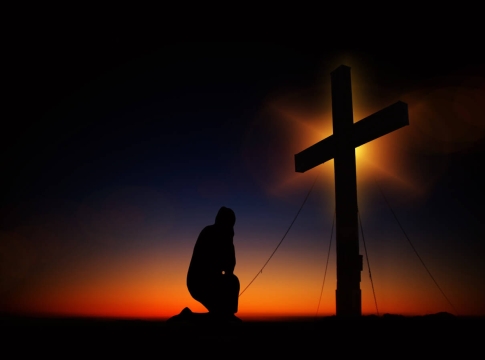
“And the Word took on flesh and lived among us, revealing his glory to us.” (John 1:14)
God’s most treasured creation, mankind, has a specific place to reside, which He prepared when He created the world and the skies. The Garden of Eden is the name given to this location (Genesis 2:8). There was a unique way that God, in all of his aspects, was present. This garden held the glory of God. In addition, the garden demonstrated the perfect union of God and humanity. As a result, once Adam and Eve sinned, they were driven from the Garden of Eden and cut off from God’s beauty and presence. However, God spoke to them and assured them that humanity will once again experience his presence and grandeur through a descendant of the woman (Genesis
God showed that He wanted to be close to His people and preserve communion through the tabernacle (Exodus 33:7–10) and later the Jerusalem temple (2 Samuel 7:1–13; 1 Kings 5:1–5, 6:1). This was in spite of the fact that Genesis 3:15 had not yet been fulfilled. These were the locations where God revealed his grandeur and presence and dwelled in a unique way.
How God dwells with his people in the New Testament
The story of the Old Testament concludes with God’s presence leaving the temple due to the people’s increasing sin (Ezekiel 10:4–10:18; 11:22–23), but with the promise that He will return in all of His glory. The New Testament thus starts with the phrase “the Word became flesh.” It is noteworthy that Jesus confirmed in John 2:16 and Matthew 21:13 that the Israelite officials had turned the temple into “a house of trade” and “a den of robbers.” Where would God’s presence reside now that it was no longer housed in the temple? Where would God and his people live?
In Christ! God would become a part of his people through the incarnate Word, Jesus Christ, when the hour of fulfillment arrived. He is the ultimate “temple of God,” the Immanuel, the “God with us” (Matthew 1:23), and John 2:18–21. John stated, “the Word… dwelt among us, and we have seen his glory,” for this reason (John 1:14).
Because everything of god is in Christ, the entirety of deity was completely revealed in Him (Colossians 2:9). The splendor of the one and only Son of the Father was revealed to the apostle John and to those who trusted in Jesus (John 1:14). God therefore made his “tabernacle”[1] among his people in Christ, reestablishing the relationship with God that man had lost due to sin in the Garden of Eden.
How God dwells in us
The good news doesn’t end there, though. [God’s plan of redemption] is ongoing. God’s children, the church, are changed into God’s temple via the work of Christ on the cross—his death, resurrection, and ascension. Paul said, “Do you not know that you are God’s temple and that God’s Spirit dwells in you?” to emphasize the significance of the church. (1 Corinthians 3:16).
God manifests his grandeur and resides in a specific way in the church. How? Because we have been regenerated, are regarded as God’s children, and are in constant communication with Him as believers and followers of Christ! All of this is exclusively accessible thru Christ. As the firstfruits of the new creation, we firmly believe that everything in this world will be changed and redeemed into a new heaven and a new earth, where God’s unique dwelling place will be everywhere and sin will be eradicated. The Garden of Eden will not compare to the entire new planet. When Christ returns a second time, this is what will occur. What a wonderful hope we have!
In conclusion, we are obligated to worship God in spirit and truth as members of His church (John 4:23-24). In other words, sincere worship “in spirit,” which comes from the [healed heart]. as well as a worship that is based on the “truth” of God’s Word.
How wonderful it is to know that God has restored our connection with Him in Christ!
[1] The Greek phrase in John 1:14 that is translated as “made his dwelling” or “dwelt” actually means “to dwell as in a tent” or “have a tabernacle.”





